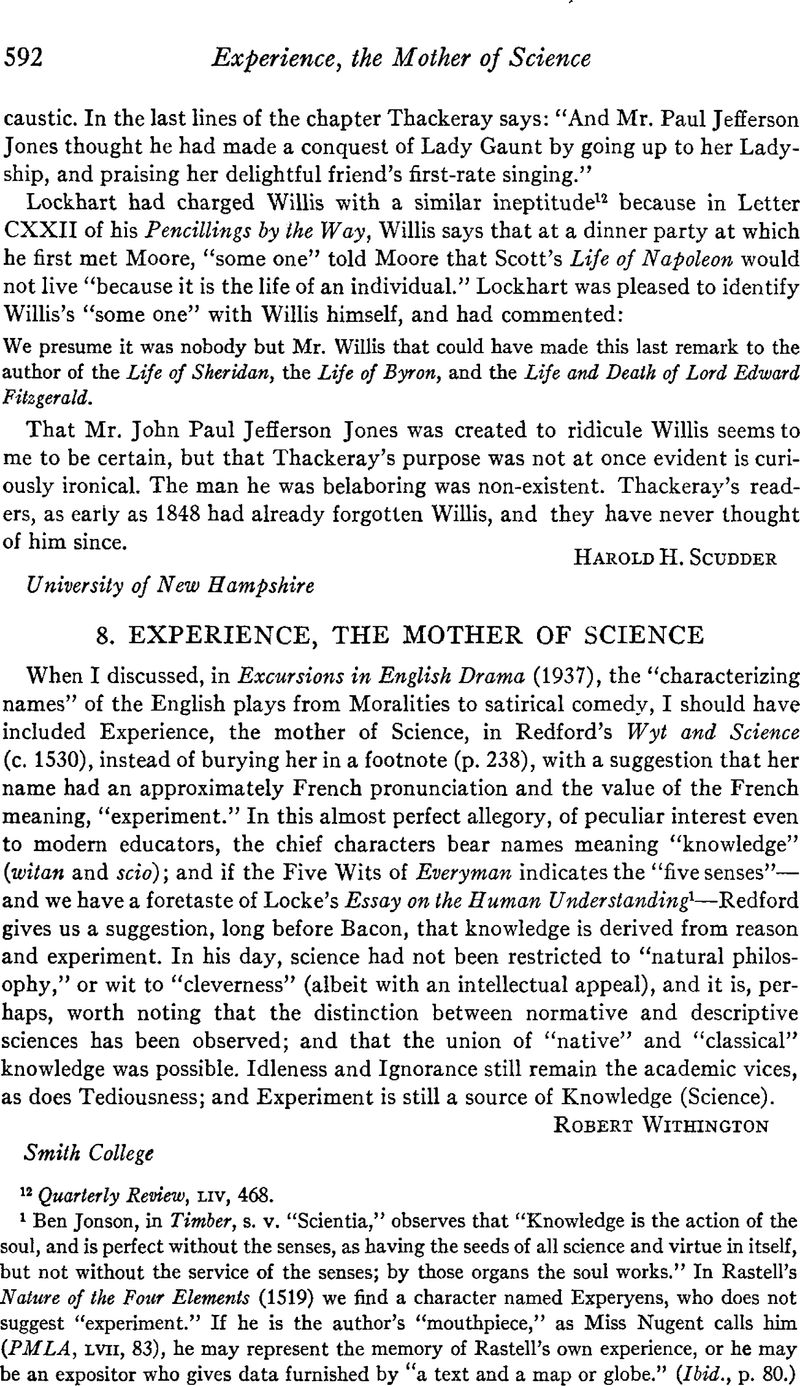No CrossRef data available.
Article contents
Experience, The Mother of Science
Published online by Cambridge University Press: 02 December 2020
Abstract

- Type
- Comment and Criticism
- Information
- Copyright
- Copyright © Modern Language Association of America, 1942
References
Note 1 in page 592 Ben Jonson, in Timber, s. v. “Scientia,” observes that “Knowledge is the action of the soul, and is perfect without the senses, as having the seeds of all science and virtue in itself, but not without the service of the senses; by those organs the soul works.” In Rastell's Nature of the Four Elements (1519) we find a character named Experyens, who does not suggest “experiment.” If he is the author's “mouthpiece,” as Miss Nugent calls him (PMLA, lvii, 83), he may represent the memory of Rastell's own experience, or he may be an expositor who gives data furnished by “a text and a map or globe.” (Ibid., p. 80.)


